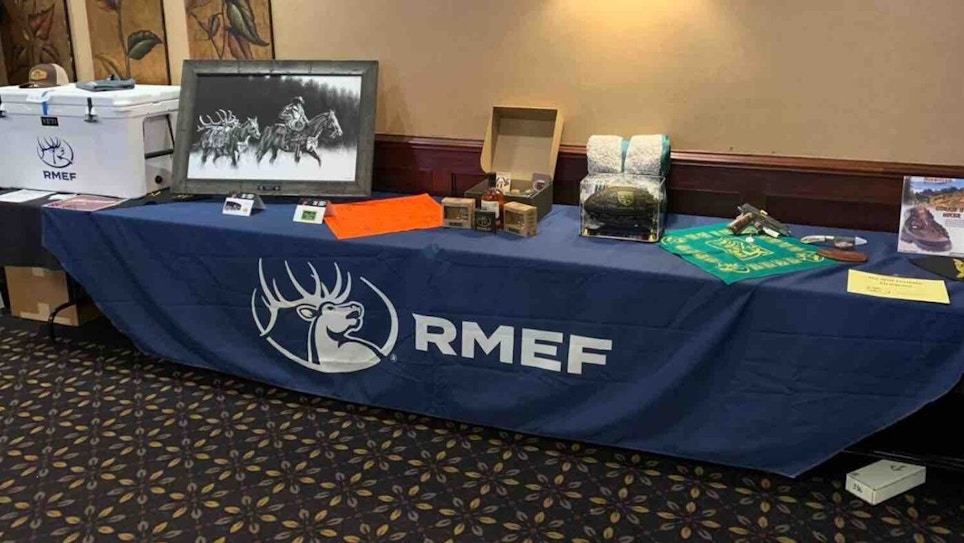Keith Weaver
Weaver’s Archery
Middleburg, Pennsylvania
First, I ask the individual or group of individuals if they have a paper that outlines the event, which helps me to see whether or not it’s legitimate. If they’re requesting a substantial donation, I hand them my donation-request form. They can fill it out and then submit it so I understand their event and exactly what they’re requesting from me.
On the other hand, if the event is just a simple raffle fundraiser, I usually donate some branded water bottles. We also sometimes stick coupons inside the bottles for our TechnoHunt range. The coupon can be redeemed for a 1-hour session with up to three archers. The winner gets something valuable, and it doesn’t cost us a lot to donate it.
Most requests are generally product-related. Every now and again, we get requests for monetary donations. We typically decline those.
We work with several local schools on a larger scale beyond the water bottles and coupons. I’ve seen a lot more results by partnering with them than I have from small raffle fundraisers, so I’ll continue to support them.
Justin Gaiche
Chase Outdoors
Rothschild, Wisconsin
Our viewpoint is we don’t own the business; the community does. Without the community, our business wouldn’t exist. For that reason, we want to help everyone we can. But it isn’t that simple: There must be structures in place so it doesn’t become a distraction or a profitability issue.
So, our approach has changed over the last 9 years we’ve been in business, and that’s due to the sheer volume of requests we receive. When we were starting out, we’d get some occasional requests, but today, it’s virtually a daily occurrence.
It got to the point where my employees were constantly having to look for me and loop me into conversations each time someone was asking for donations. It was a poor way to handle it because I can’t always drop what I’m doing. It was becoming a big distraction.
Our solution to the ongoing problem was to create a boundary. Now, all requests must be e-mailed to one point of contact, which is my wife and office manager, Nicole. All of my employees are equipped to thank the requester for stopping in and then hand them Nicole’s card with her e-mail address, and clarify that all requests must be delivered to her via e-mail. They also explain that Nicole reviews requests on every Tuesday and will respond at that time.
She spends 1 hour examining the requests, then uses our budget framework to determine who gets what. This approach has significantly alleviated the distraction aspect, and it’s a great way to address the “my event is tomorrow, please give me something” people. If they come in with that lack of planning, it usually isn’t beneficial to be affiliated with their event.
We’ve really tried to create continuity in what and how much we give. Most cancer benefits, little leagues and the like get a branded hat, branded T-shirt, branded coffee mug and a $20 gift certificate to our store. It has allowed us to create a monthly budget. It gives us the parameter so we can politely say, “We’re sorry, but we’ve reached our monthly donation budget.” People really seem to respect and understand that, and it’s a positive, not a negative. It tells them that yes, we do give, but we’ve reached our capabilities.
Jim Carson
Kansas Archery Center
Manhattan, Kansas
In the beginning, I always struggled with saying “no.” Nearly everyone got something. Over the years, I started realizing I couldn’t keep helping everybody. I have only a finite amount of resources to go around.
Rather than help a bunch of different people and groups, I’ve picked a few to focus on so I can help on a larger scale. Since I can’t help everyone, I shoot straight with those I’m unable to donate to; I inform them I already have groups and organizations I’m supporting.
When considering a request, I first consider where the individual or group is from. If they’re local, then I take a closer look. If they’re archery-related, that helps, too. There’s an Army post down the road, and a lot of veteran groups come around. I generally try to help those folks. I also help local schools and churches because those are important to me.
I handle requests one at a time. I’d probably weed out a lot of illegitimate requests if I made folks do some homework and fill out a donation-request form. However, I haven’t taken that step yet.
I’m more apt to help out when folks request product or gift certificates. If they’re asking for money, I look very closely at the details. Gift certificates make a great donation. You’re giving away something free, but the money has to be spent here, so it brings people into my store.
I view donations and sponsorships as two different things. Donating helps people with little to no expectation on a return. Sponsorship is a form of advertising. I don’t necessarily expect something in return when I donate, but with a sponsorship, it’s important to get a good return for the money.






